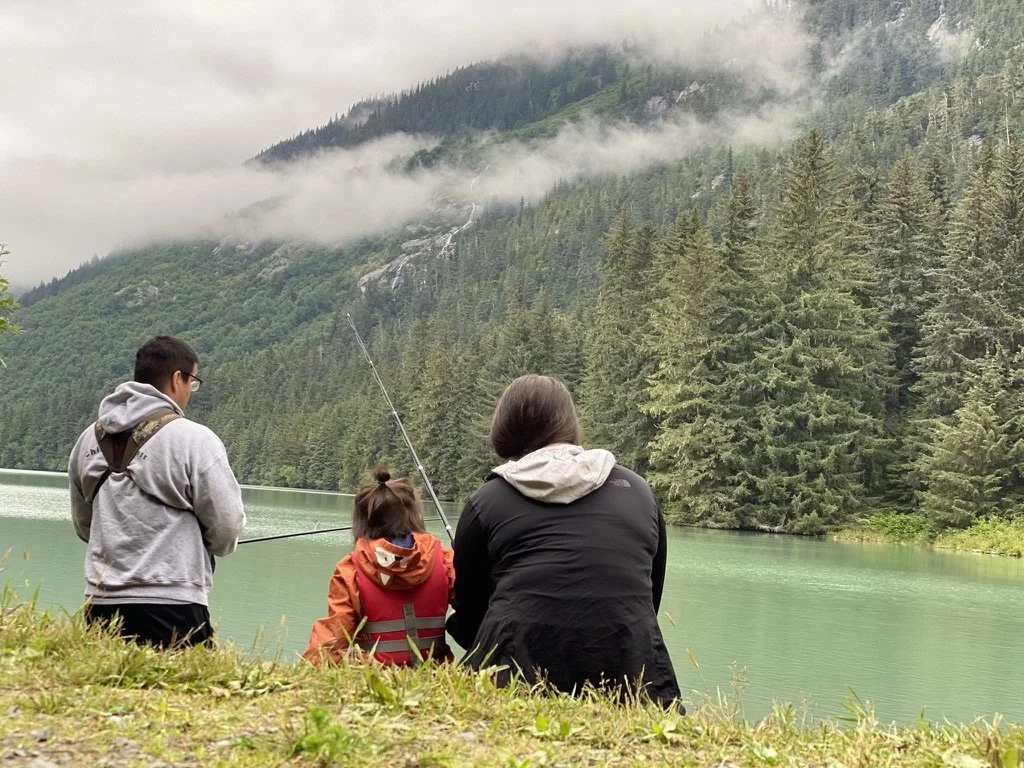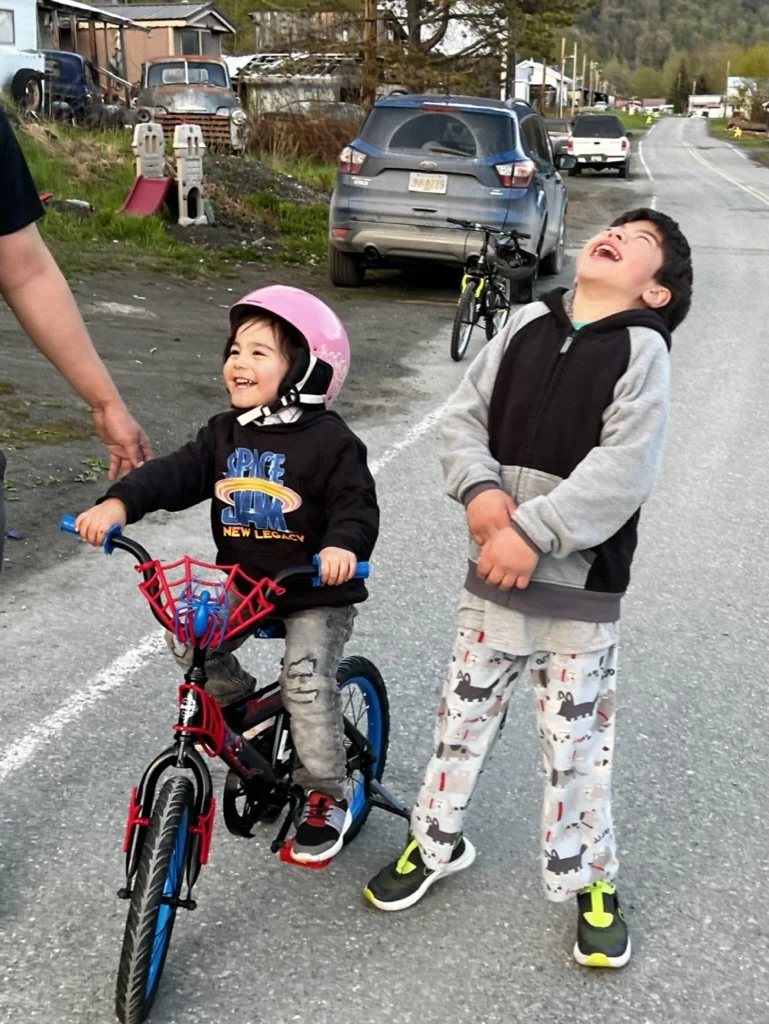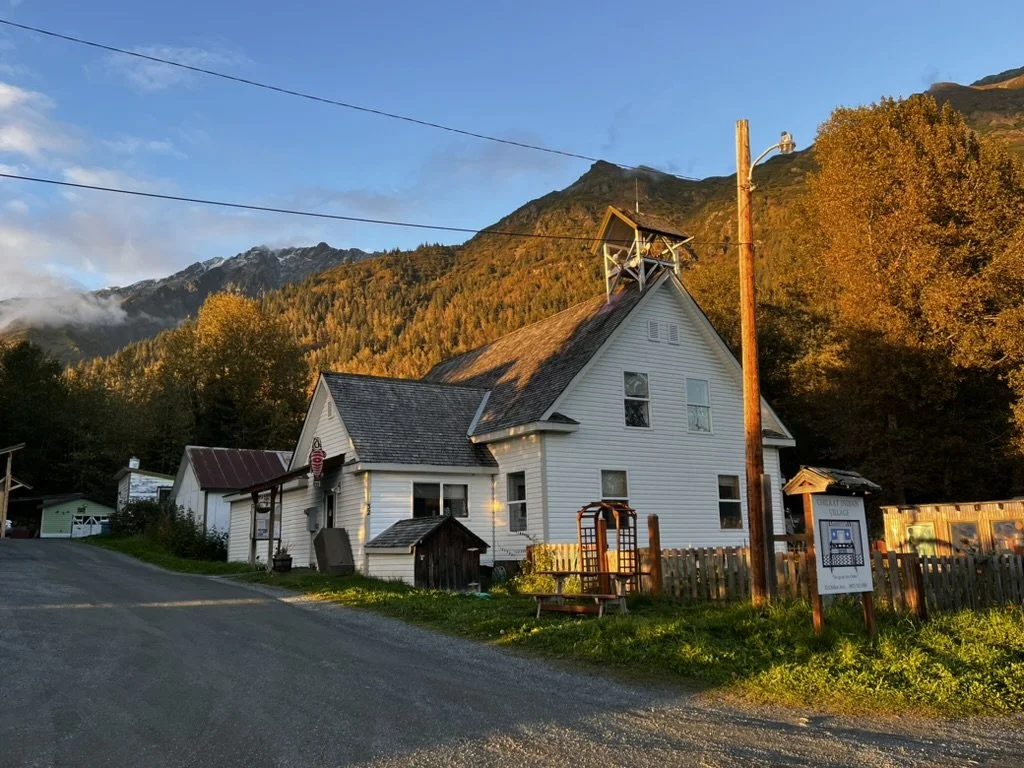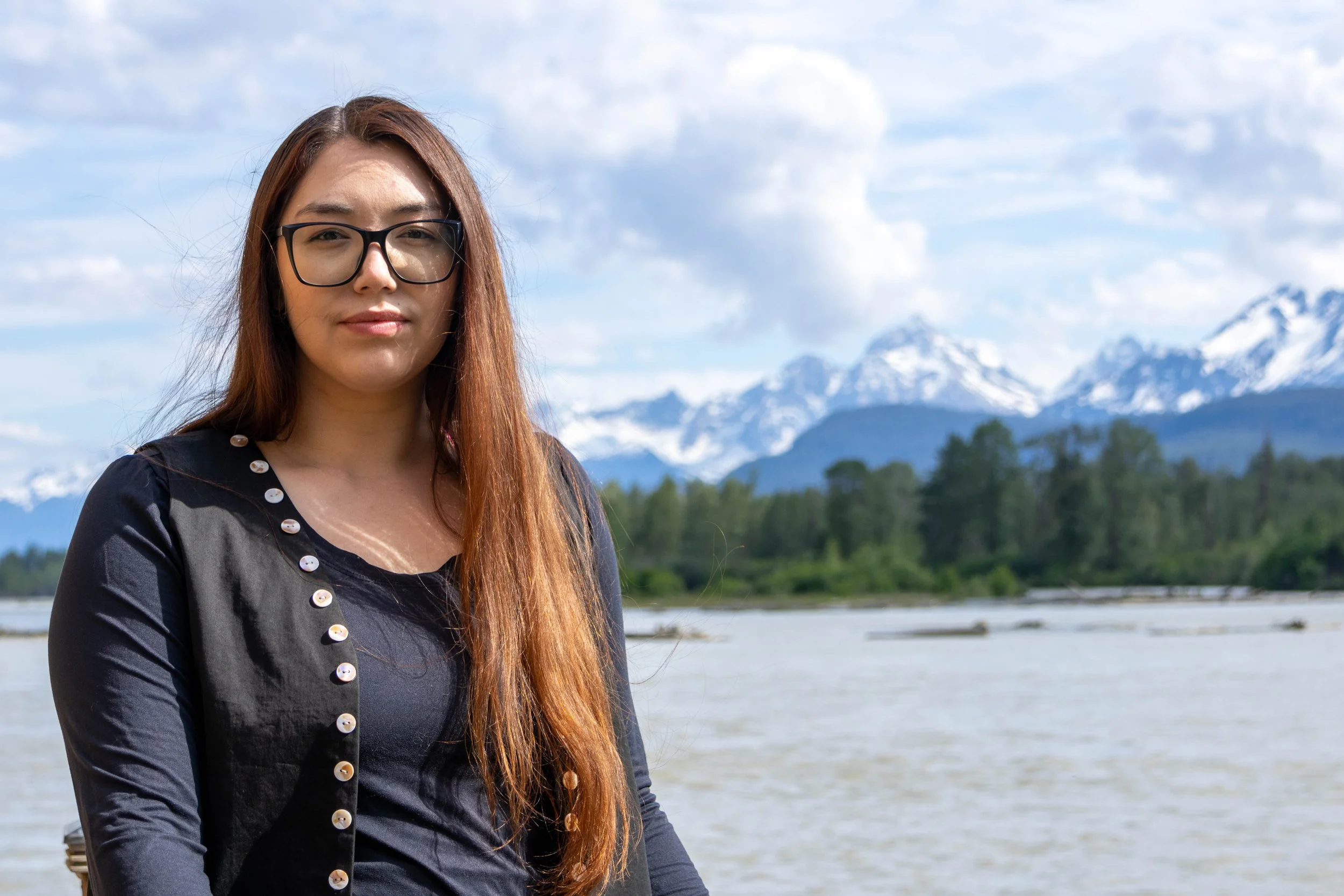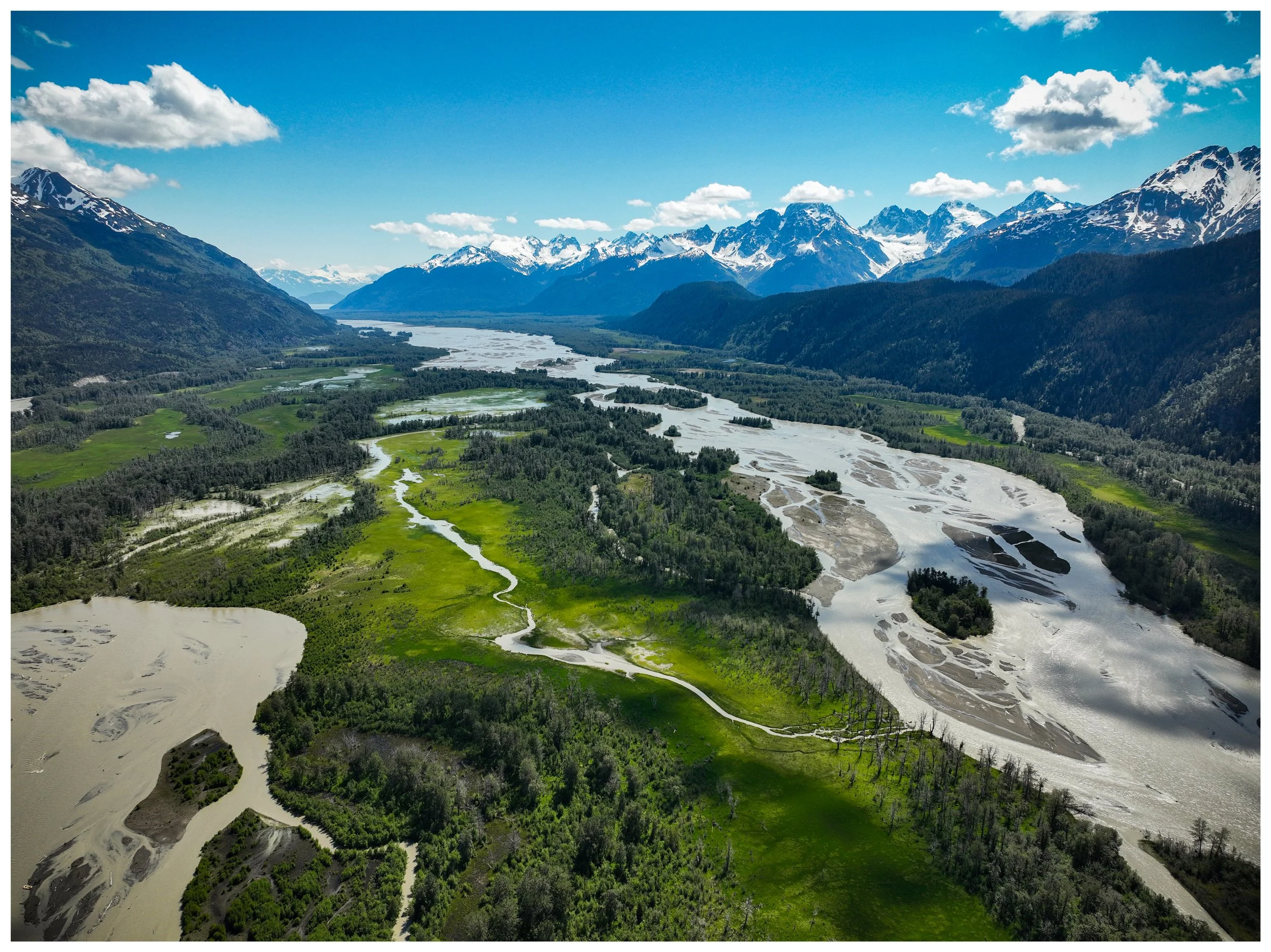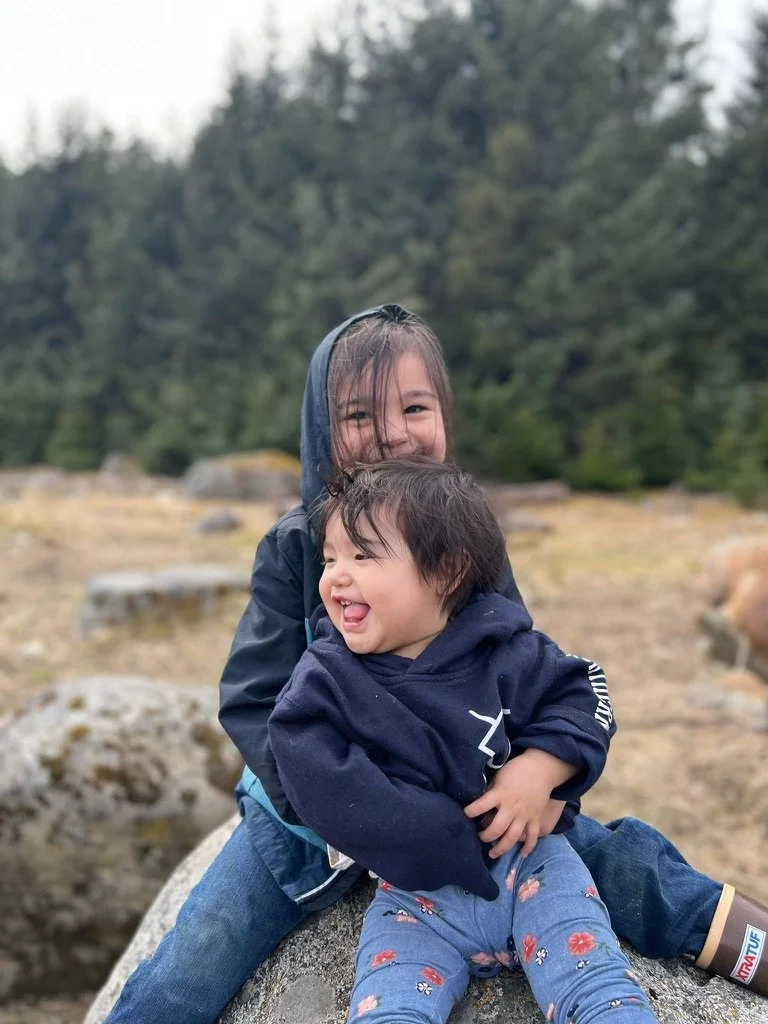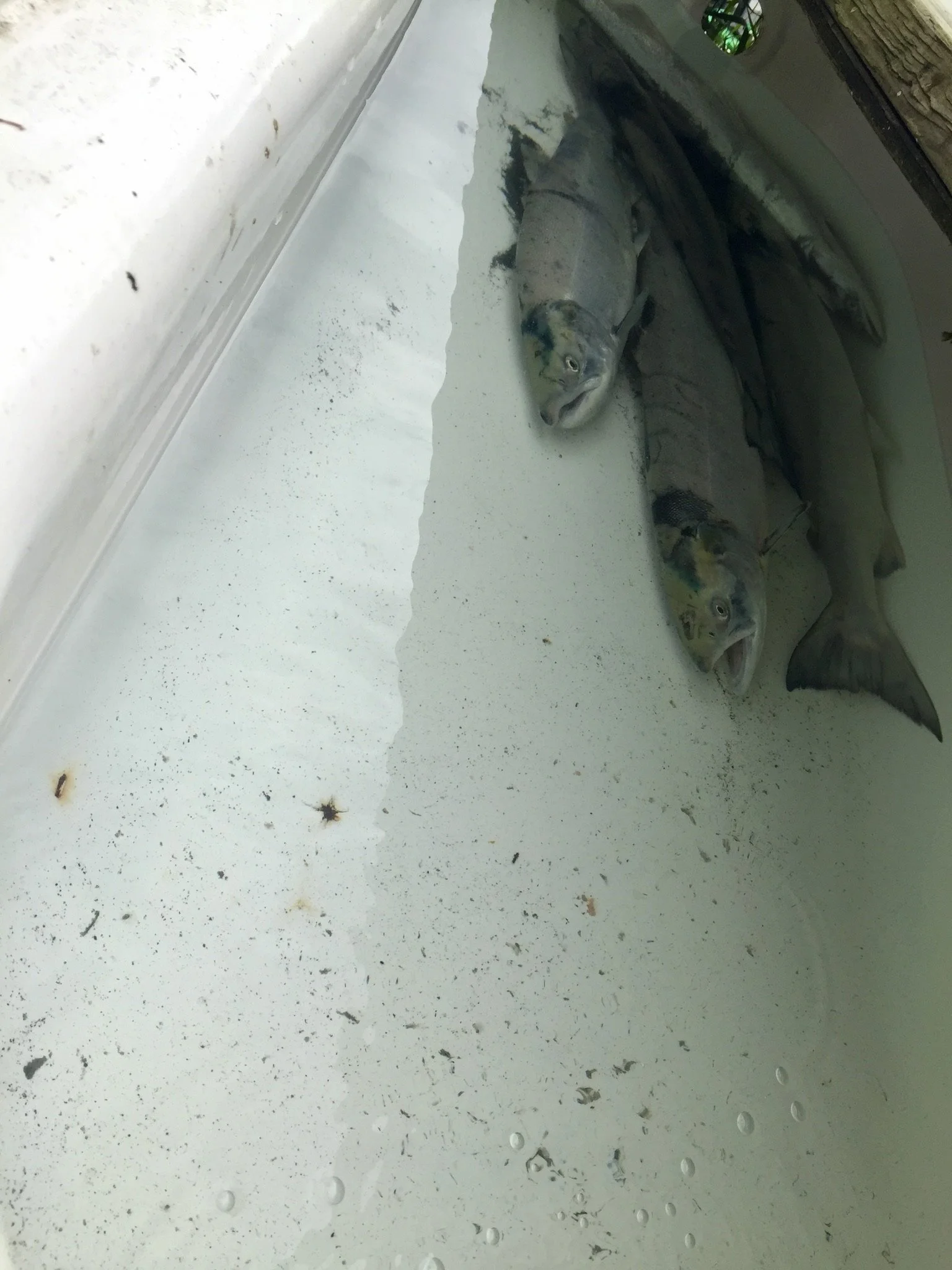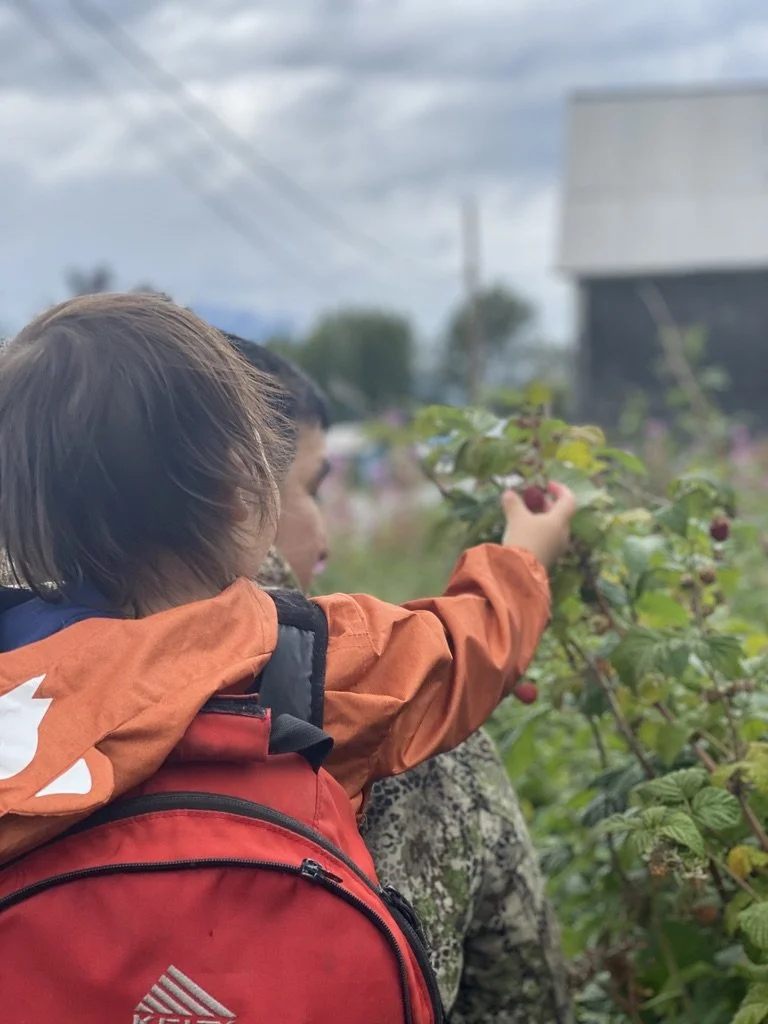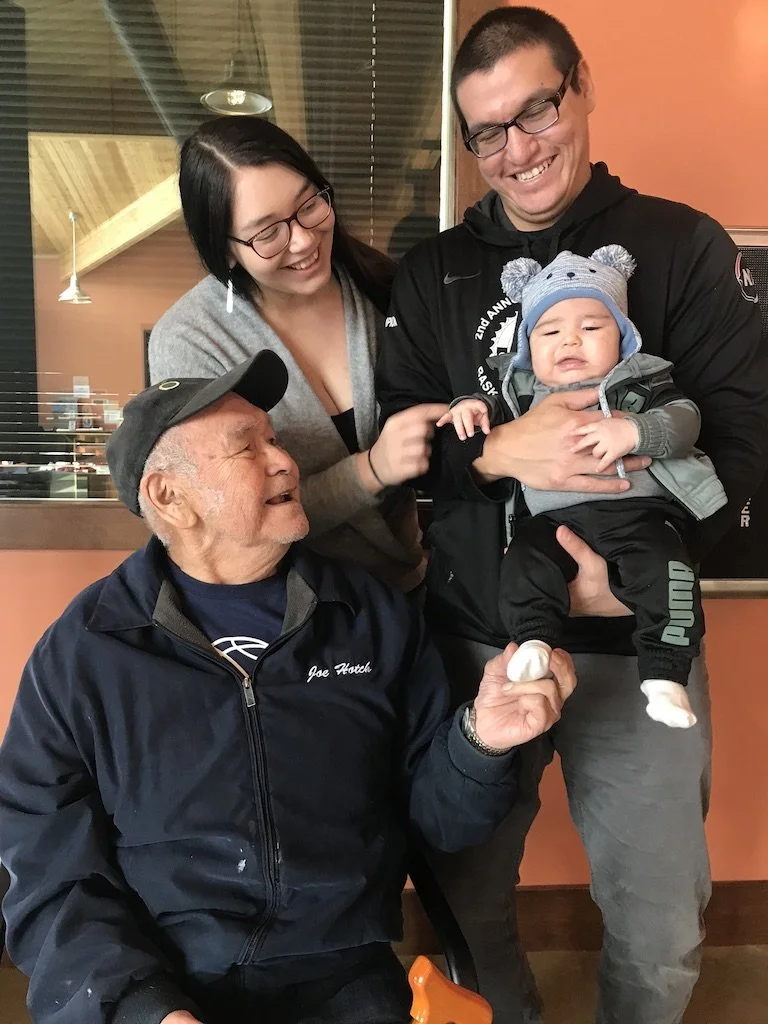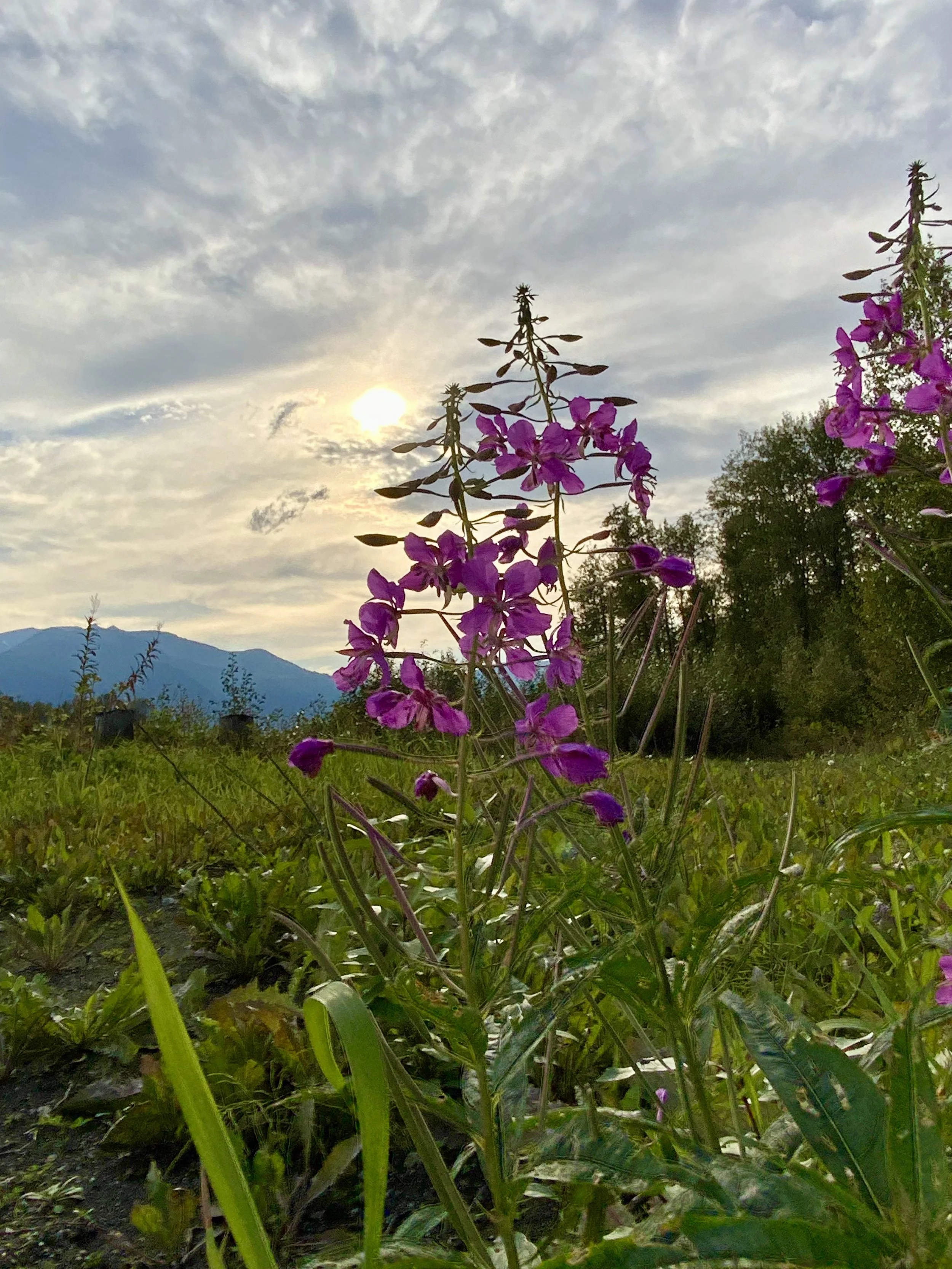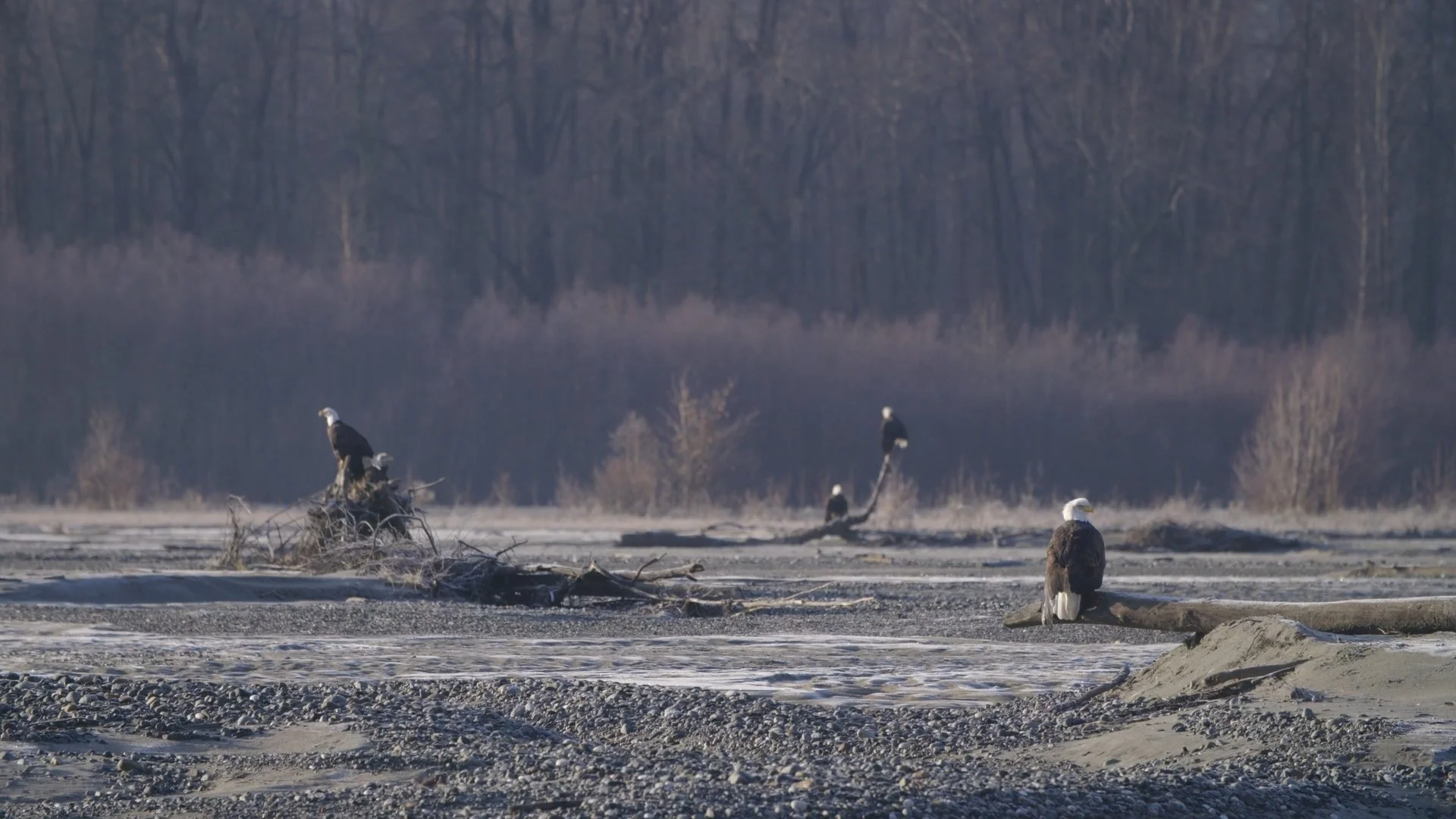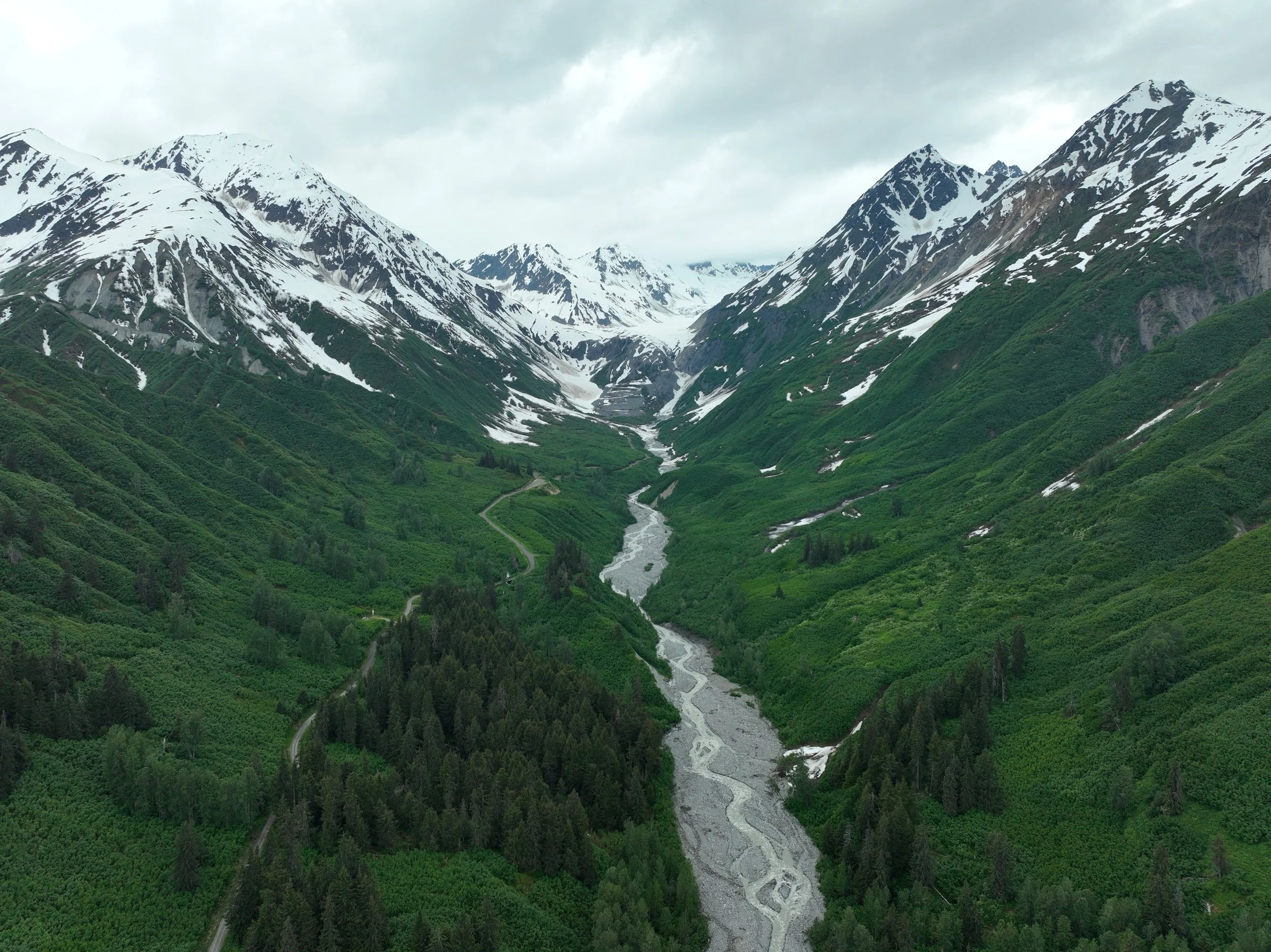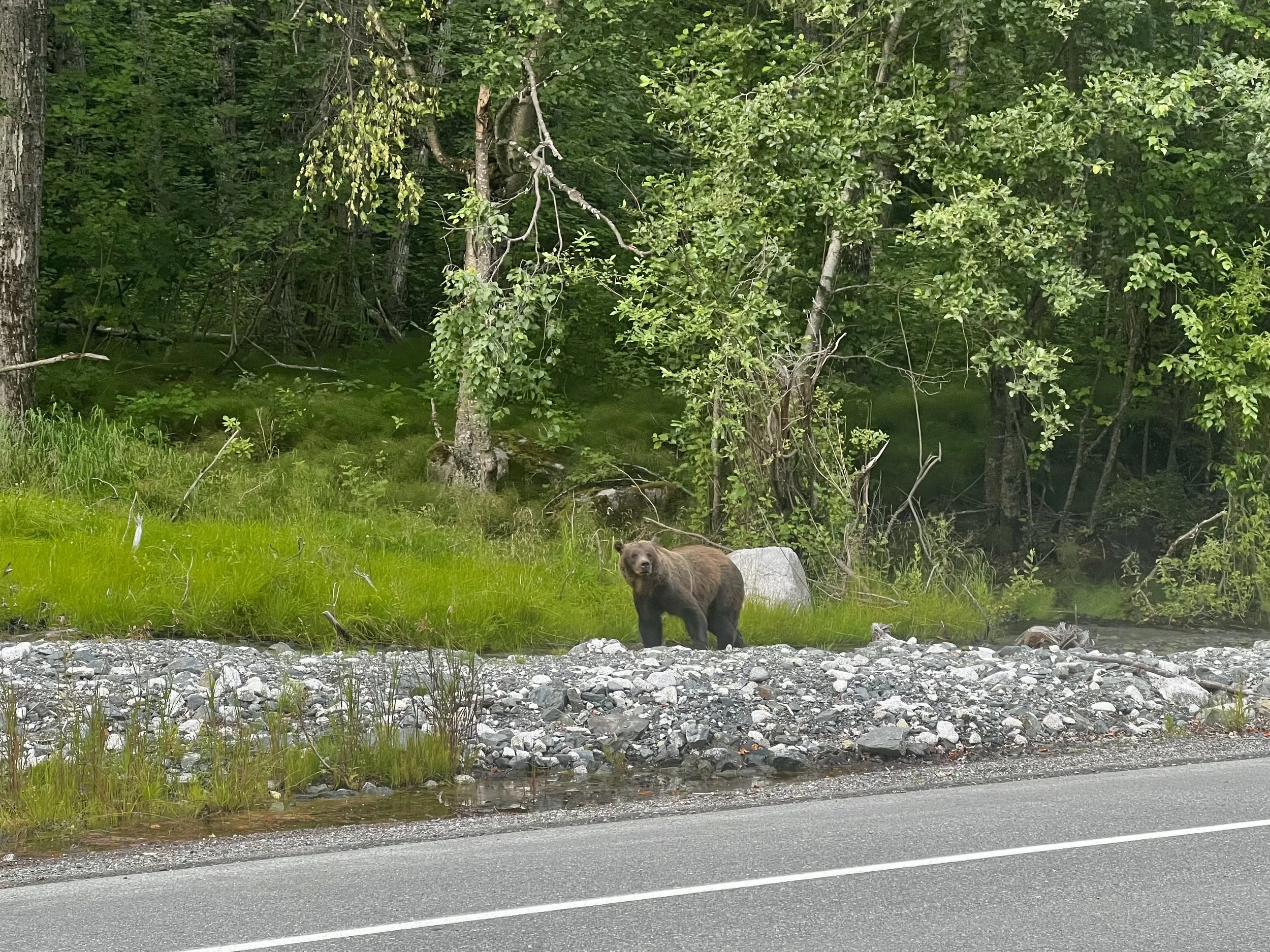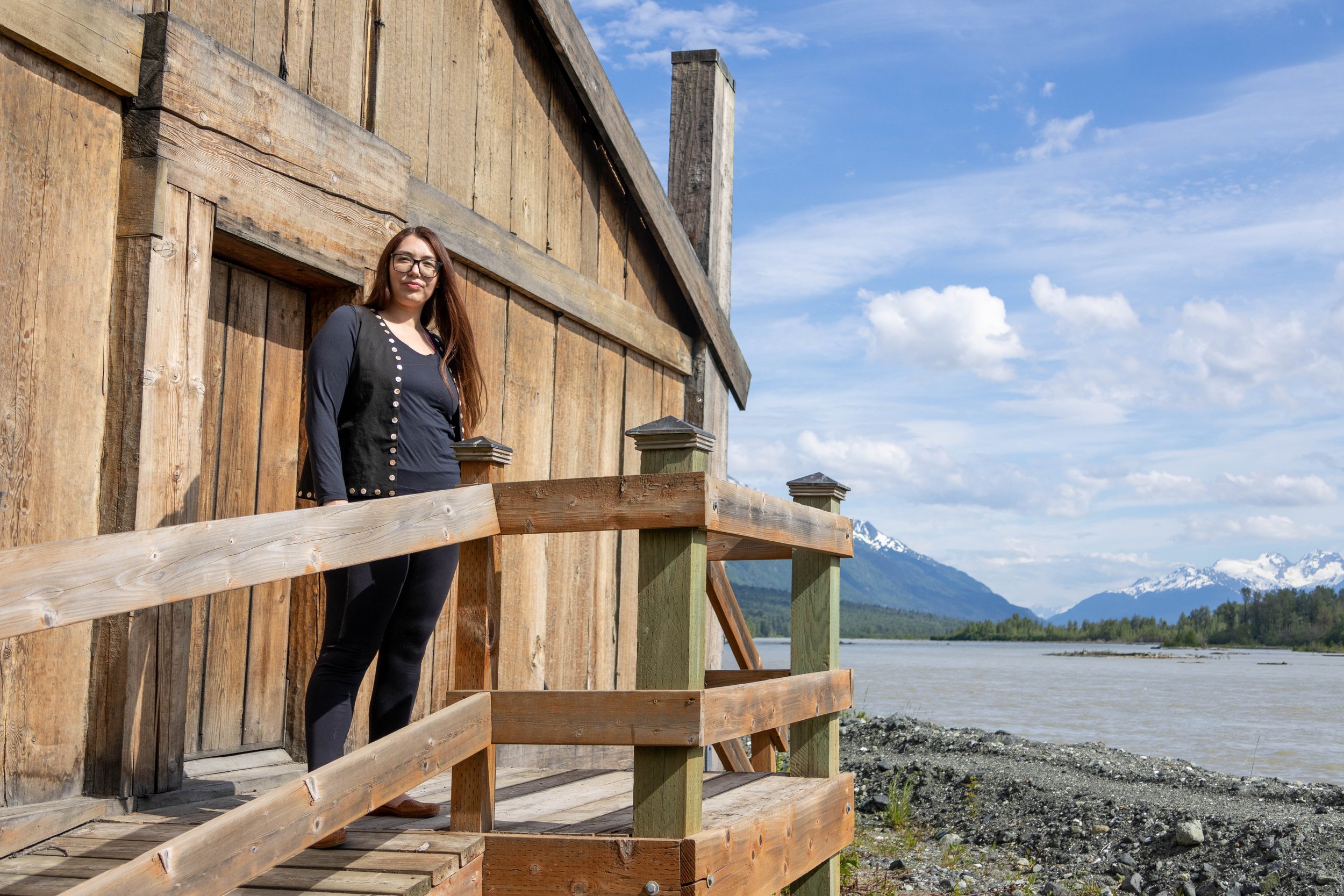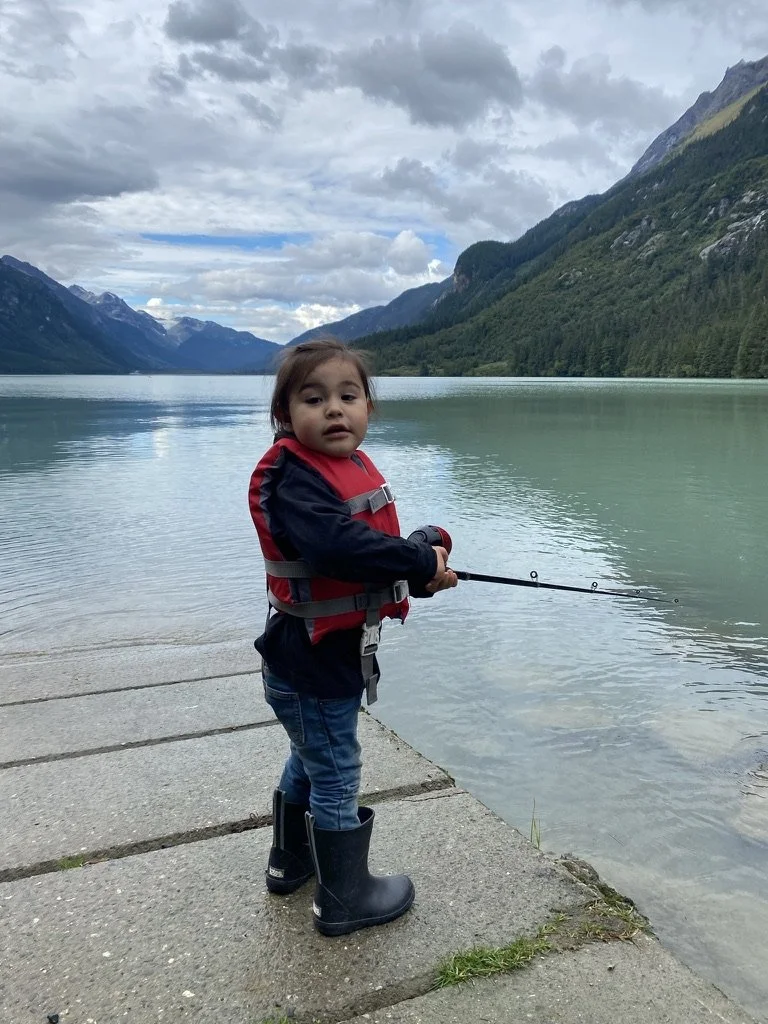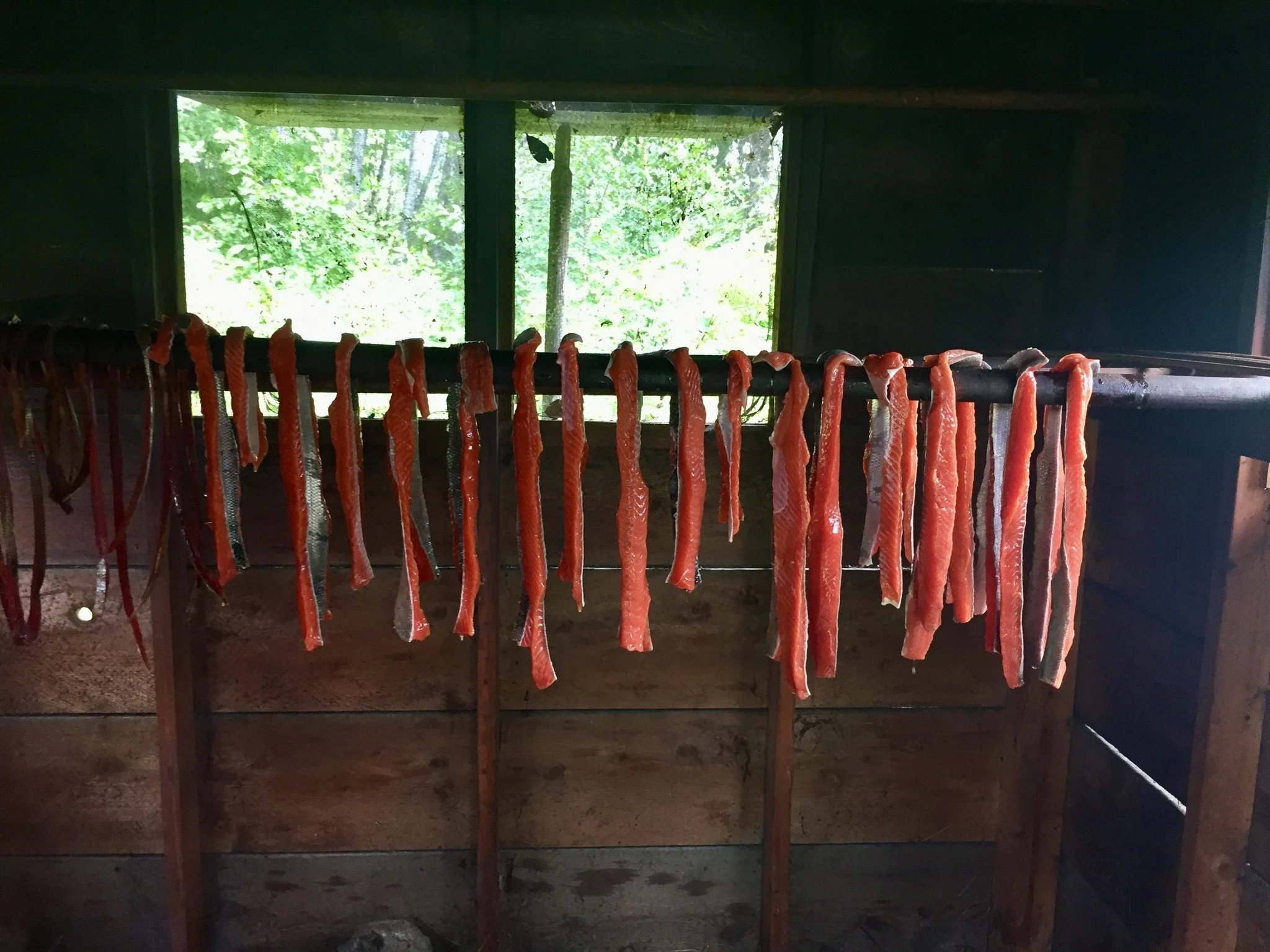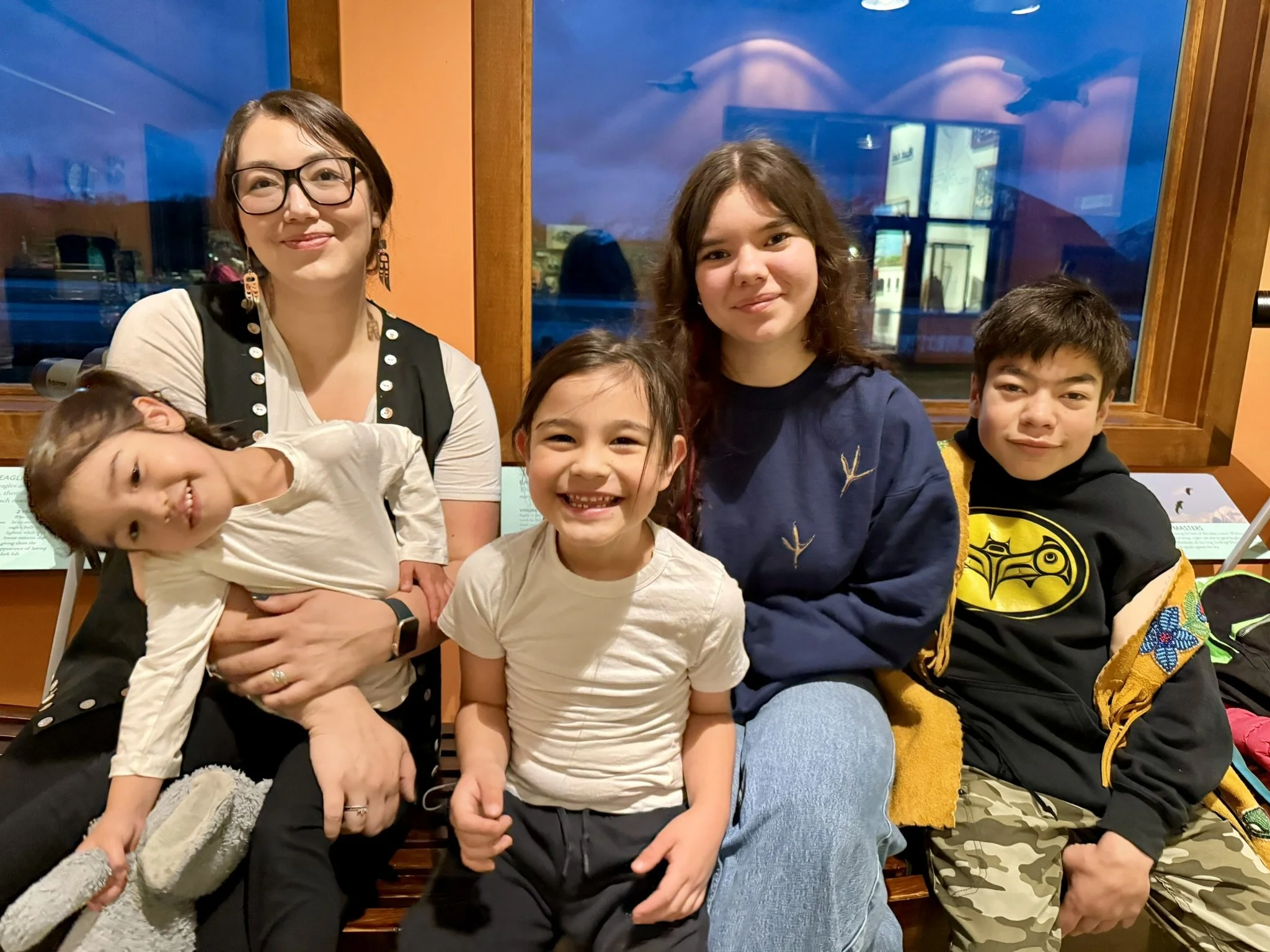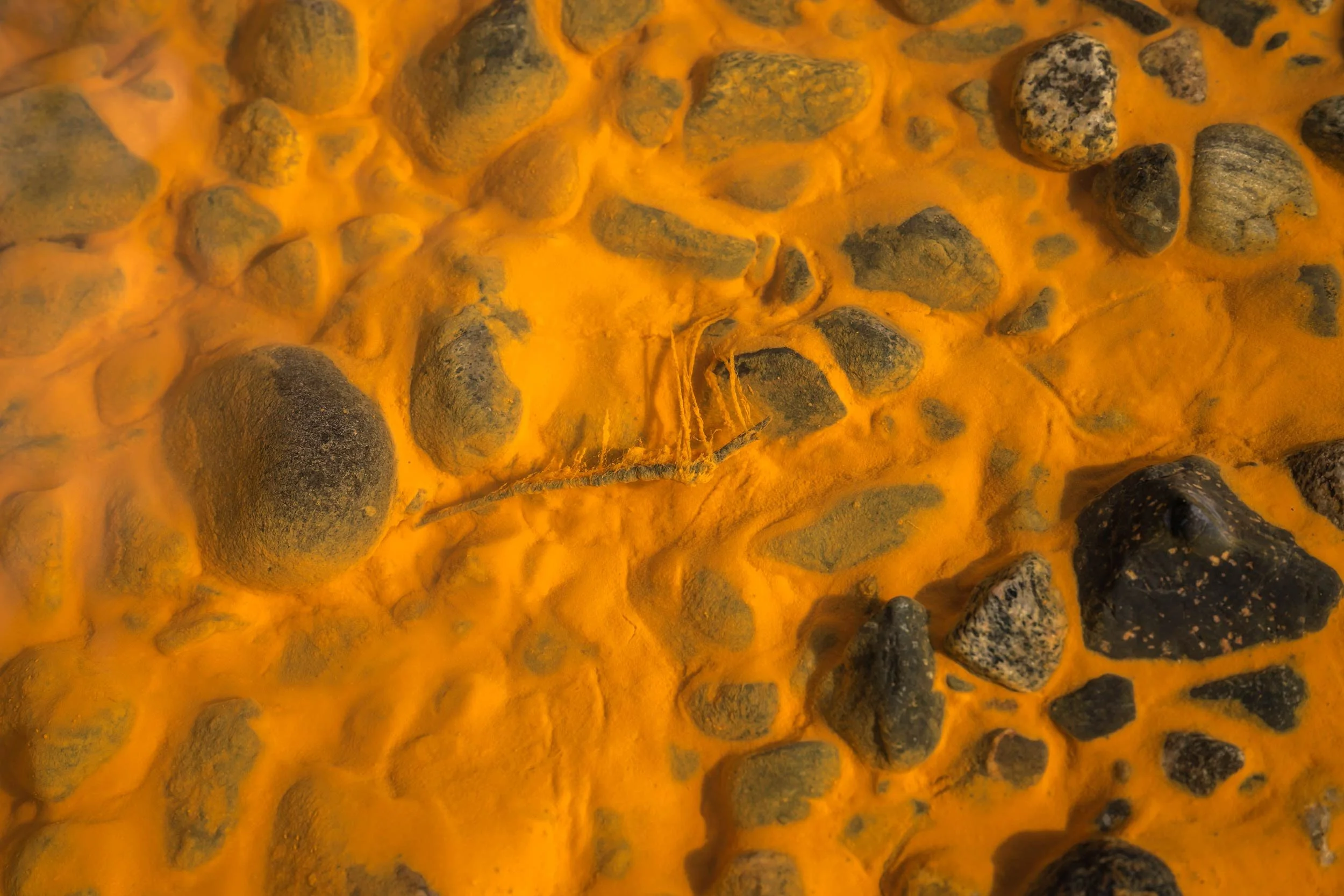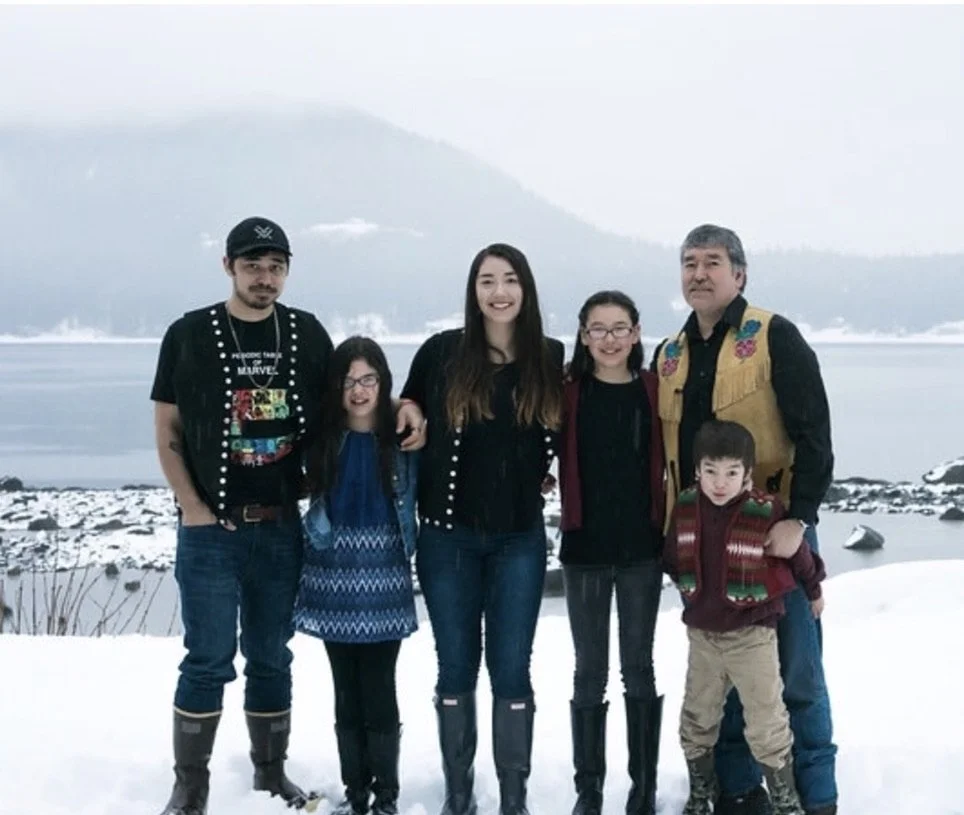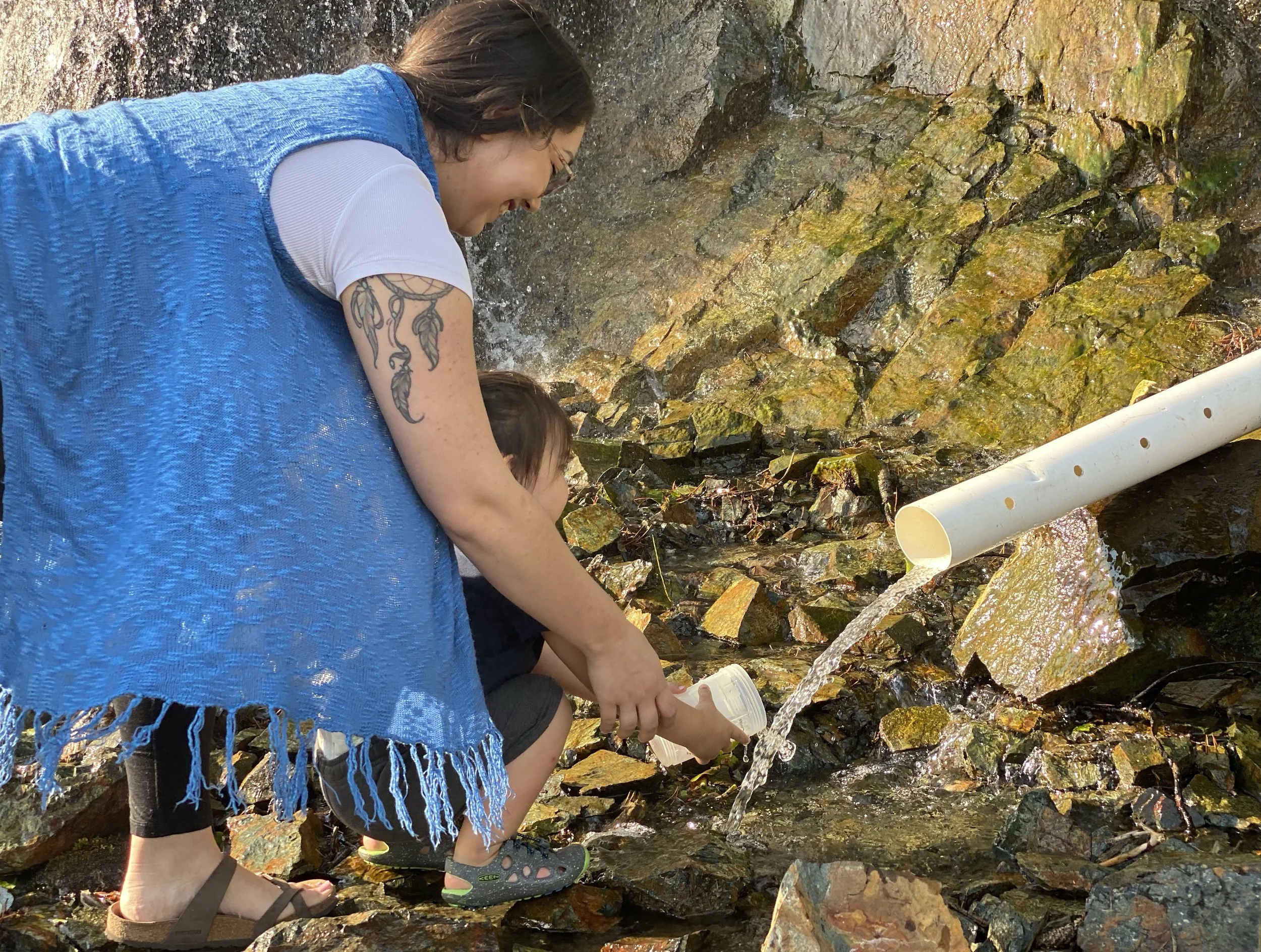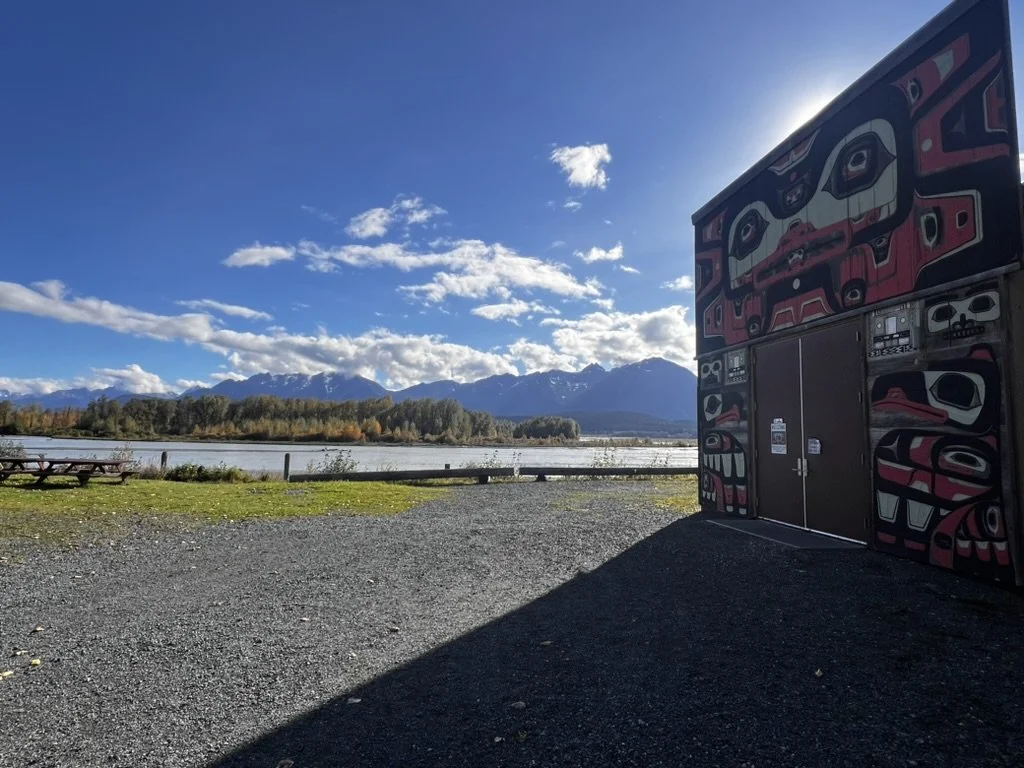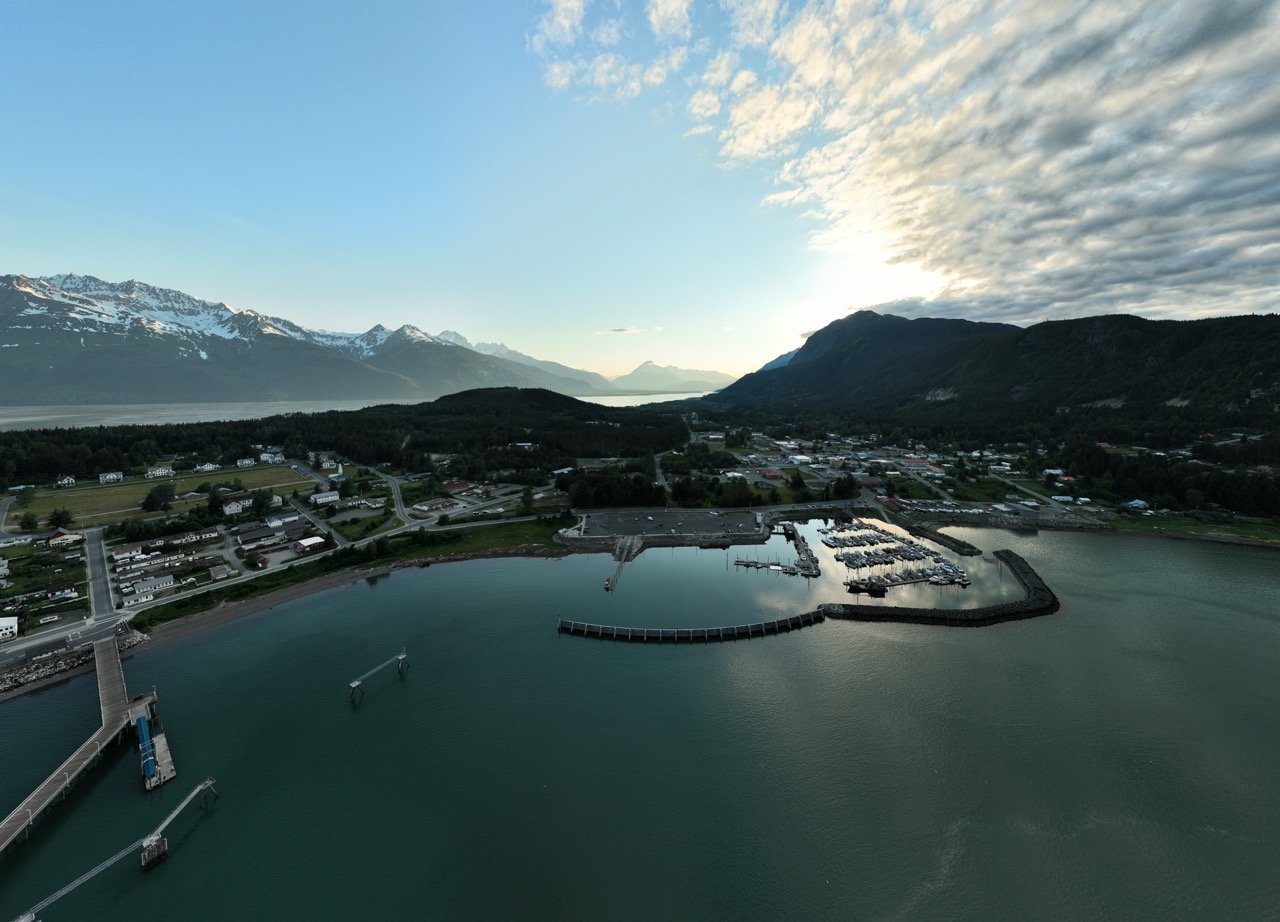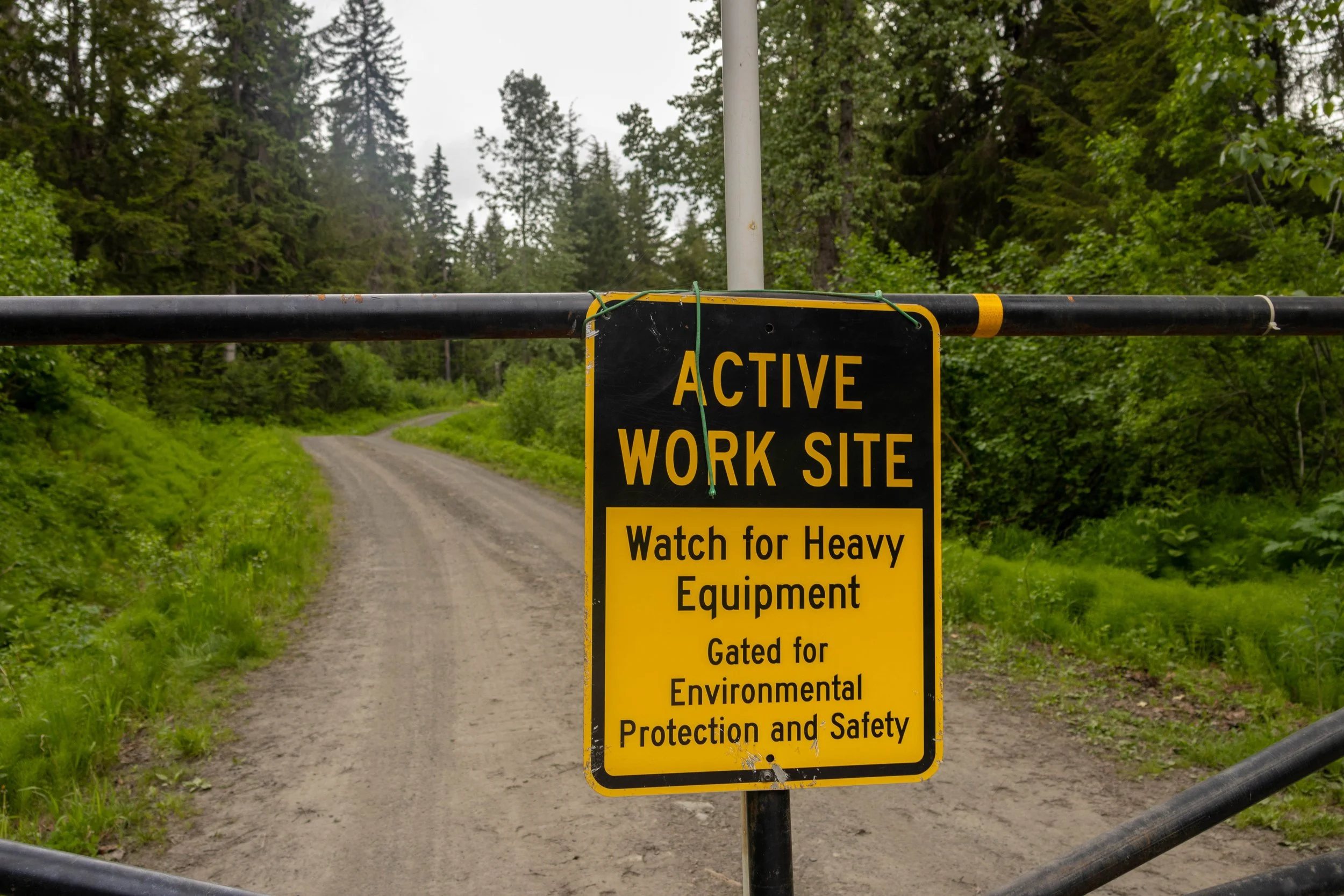Shawna Hotch
“I think what I love most about Klukwan is the interconnectedness. It's a value that is taught by experience, but also through engagement. Everybody is related, so you always get invited to community events. You get encouraged to participate. You might get last minute invites to attend birthdays, potluck events where we're just kind of throwing something together, but people show up because we all care very deeply about Klukwan.
I've lived in a lot of places in the United States and you don't find the safety and the sense of belonging that I have with Klukwan anywhere else. A lot of times when I lived elsewhere, I was always looking over my shoulder or not feeling safe.
Being a Native woman in the United States is kind of scary, but I don't have to worry about that here. Not just in Klukwan, but in the Chilkat Valley. Everybody is together, and we protect each other whether there's a mine or not.
That's a Chilkat Valley value — holding each other up and working together.”
-Shawna Hotch, Chilkat Indian Village (Klukwan) Tribal Councilwoman
“So the origin story for Klukwan is that our ancestors picked this place, not only because of how abundant our food sources were, but also how easily we could defend it and how well we could travel and trade. And so Klukwan became well known throughout the Pacific Northwest for its trade routes, for our weavings, for our food, for our carvings. And that was because our Elders realized how special this place was.
One thing that we're always taught is that Jilkáat Kwáan is a people and a place. The land around us is Jilkáat Kwáan. It's all of our traditional land. But there's no separation between people and place for the people of Klukwan.
We all have that ecological sense of respect, but also we understand and are aware that everything is connected.”
-Shawna Hotch, Chilkat Indian Village (Klukwan) Tribal Councilwoman
“I felt the call home when my son was probably about six months old. I wanted to go back to school. I came home because I knew no matter what, I wouldn't have to worry about childcare. I wouldn't have to worry about my kids' safety like I would when I was living in Montana or when I was living in Colorado. Here, everybody steps up for my kids. If they're misbehaving, I know that their aunties will tell them to behave. I know my dad and my sisters will tell them, ‘Hey, can you do this instead?’ Children are revered here, and everybody sees children as an investment. And so having kids here, it feels like the entire community invests not only in my kids but in our next generations. They see children and they cherish them.
I don't know how many times my kids get stopped in the village and people shout a Tlingit phrase at them or just say random things to them to encourage them to be a part of Klukwan. Like my son yesterday stopped somebody in the grocery store who was a tourist and said, ‘My name is Avery. I'm five years old and I'm from Klukwan.’ That was just so powerful. That's his introduction. That's how he starts his conversations with strangers. And he says it with so much pride.”
-Shawna Hotch, Chilkat Indian Village (Klukwan) Tribal Councilwoman
“We directly rely on the river and everything that the river provides: the food, the plants, the animals, everything is connected. Without our food source, I don't think we would exist. We literally chose this place because of how abundant it is.
Klukwan has a lot of biodiversity. We have all five species of salmon, but we also have trout. We have dollies and we have hooligan. My husband is a transplant here, and his dream was to live in Alaska or fish in Alaska. He gets to live out his dream all the time now.
We have big game hunting that people come from all over the world to be a part of — and that's just part of our way of life. We have bears here. People do eat bear. We have moose. We have goats that we use for our Chilkat weaving when available.
Our ancestors were very resourceful. We have beavers. We have porcupines. And a lot of it is integrated into our traditional arts, and even now, in modern interpretations of Northwest Coast arts, too.”
-Shawna Hotch, Chilkat Indian Village (Klukwan) Tribal Councilwoman
Photo 2 by Colin Arisman
“There's also a lot of biodiversity for plant life. We have yarrow growing right outside of the Heritage Center. We have fireweed, we have roses. We have so many things that traditionally were used for medicine, for skin, for respiratory illnesses, for rashes, for bronchitis, or tuberculosis. Devil's club is a key one that a lot of people associate with Southeast.
We have the largest congregation of eagles because all five species of salmon come back to the river, and the fact that the salmon are here pretty much year-round. You can get sockeye, which is the one everybody likes in the summer, or you can get coho for winter fish. In the spring, everybody knows that you can fish for hooligan and get hooligan oil. Everybody uses hooligan oil for one thing or another.”
-Shawna Hotch, Chilkat Indian Village (Klukwan) Tribal Councilwoman
“I learned about the proposed Palmer mine project probably 10 years ago, when I was an intern for the Chilkat Indian Village of Klukwan. I went to boarding school for four years in Salem, Oregon, which is the oldest continuous off-reservation boarding school in the nation. Then I went to college. And I would spend summers here and intern in the office so I could learn. And Jones Hotch, a council member of CIV and one of our research policy analysts, were talking about it. They were starting the conversation, and I think that's when I first heard about it. As a teen, I didn't really know how to feel about it.
But the more school that I got and the more years that we've been fighting it, the more empowered I feel to take action to protect our way of life. The more I traveled, the more I realized what we have here in Klukwan and the Chilkat Valley. This is one of the least disturbed watersheds that I've encountered, and I don't want to see it changed.”
-Shawna Hotch, Chilkat Indian Village (Klukwan) Tribal Councilwoman
“Part of my experience growing up is that my dad actually worked at a boarding school. I think he worked there since before I was born. So I grew up in Oregon while he was working there, and then we'd come home so he could fish in the summers and do commercial fishing. And that was when I got to engage with our culture. That was when I got to hang out with my aunties and my grandparents and be really a part of the culture.
I feel like one thing that isn't talked a lot about is the impacts of boarding school and colonization on our access to our culture and revitalization efforts. There's a lot going on between my grandparents' generation and my generation to get our culture back.
When we have to fight things like a proposed acid-generating mine, it takes away from resources and capacities to teach our culture. There is so much time spent in government consultations and background meetings. Some of our elders that are fighting this and have been fighting this for so long, so they're not the ones that are teaching our culture, or they're spending less time than they would normally because of this mine.”
-Shawna Hotch, Chilkat Indian Village (Klukwan) Tribal Councilwoman
“I have a Bachelor's in public health from Fort Lewis College. I also have a Master's in public health that I got during the pandemic from North Dakota State University. I am also a student getting my Master's in community development from North Dakota State University. It really gives me an opportunity to learn things in real time and implement them.
I’ve learned about things like warm water upwelling. Or the importance of our wetlands, or biodiversity. And in the summer semester of 2024, I was taking a class on community organizing and how to engage people and mobilize community assets to invest in their own community. That’s what we are doing now. And that's one of the most powerful things to me.”
-Shawna Hotch, Chilkat Indian Village (Klukwan) Tribal Councilwoman
“My job as a tribal liaison is to identify novel initiatives and support existing initiatives in the Chilkat Valley. So what I like to do is talk to people. I operate on the fundamental belief that everybody is an asset. That's a traditional value.
Back in the old days, everybody had a job, everybody contributed. And that was how our communities were so sustainable, because everybody had a place, and they knew what was expected of them. I want to get back to a place like that, where there's more healing and there's more opportunity for people to not only invest in themselves but to see other people's investments.”
-Shawna Hotch, Chilkat Indian Village (Klukwan) Tribal Councilwoman
“While there's people that already know how to fish the river, that's a skill that could be potentially lost. But I would love to see programs that teach people how to drive a river boat on the river. There's also skills like how to hunt and skin mountain goats or how to harvest the fur for weaving. Those are all skills that people in our community already have and we just don't have the programming or capacity to teach those at a level that needs to be taught.
Our traditional way of life was through learning by experiencing and a lot of our time is spent away from experiencing because we're fighting things like the mine, or we're fighting the effects of colonization. So it really makes a thriving community of Klukwan difficult when we're facing things like structural racism or historical trauma or addiction or drug use or even access to health care because we're in a real remote community.”
-Shawna Hotch, Chilkat Indian Village (Klukwan) Tribal Councilwoman
“There's so many things that we're facing, and if you think about it too much, I feel like you get that sense of dread. But I also like to approach things from how we envision doing things together. How do we envision our future in Klukwan or our future as the Chilkat Valley? Things that people can actually do and reframing things in a positive way really gets people to buy into things a lot easier.
It's easy to complain. It's harder to do things, but it's so much more rewarding to engage people and see what they have to offer and then just give them the opportunity to offer what they already have.”
-Shawna Hotch, Chilkat Indian Village (Klukwan) Tribal Councilwoman
Photo by Chris Miller
“One of the key threats of an acid-generating mine on the Chilkat River watershed is the chemical change of the river. Fish leave the scent for their next generations to know where to spawn, to know how to get home.
If we have chemical spills in our river, that will change not only the smell of the river, but that will change how it looks. I've seen photos of things being yellow. I've seen things tinted in different colors. How we see the Chilkat River watershed now will completely change. And I don't think that's something that people realize.
I know there's benefits that people see, but the people of Klukwan see directly how everything will change because we are systemically tied to the watershed. And if one thing changes that impacts everything.”
-Shawna Hotch, Chilkat Indian Village (Klukwan) Tribal Councilwoman
“If you live in the Chilkat Valley and are still undecided about what position to take for this proposed mine, I strongly suggest that you get involved with Klukwan. We are willing to teach people why the river is important, but it's something that you have to learn through experience. A lot of times we have a narrative of ‘it's our way of life’. Yes, it is. But if you don't understand what that means, it might just go over your head. That's not something that you can fundamentally understand until you are a part of it and the best way to learn is through experiencing.”
-Shawna Hotch, Chilkat Indian Village (Klukwan) Tribal Councilwoman
“Our watershed is our way of life and every voice matters in the Chilkat Valley. What we have to say and how we experience the river is different for every single person and true community power comes from the people that live here. Our lived experiences speak beyond measure on the importance of the river to our way of life and how we relate to each other.
This is a call to action to everybody who is interested in preserving our way of life as we know it here in the Chilkat Valley. If we have an acid-generating mine, it could have lasting impacts on our air, our water, our food and everything in the Chilkat Valley.”
-Shawna Hotch, Chilkat Indian Village (Klukwan) Tribal Councilwoman
“One of the things that's very frustrating about this proposed mine is that it's not coming from within the community. They try to sell it as something that the community wants and say that it'll sustain the community. When in reality, it's foreign. It's not people from the community that are making the decisions. It's people from outside the community, outside the nation that are trying to impose their will on our valley and that's not what we want.
We want people to make decisions with us to protect our way of life and that's not what they're thinking about. You can't expect a foreign entity or a foreign organization to prioritize our needs. If you go anywhere in the United States or anywhere in the world, they're thinking about their needs and how to fulfill what they need to get done.
The only people that put Klukwan or the Chilkat Valley first are the people that live here.”
-Shawna Hotch, Chilkat Indian Village (Klukwan) Tribal Councilwoman


